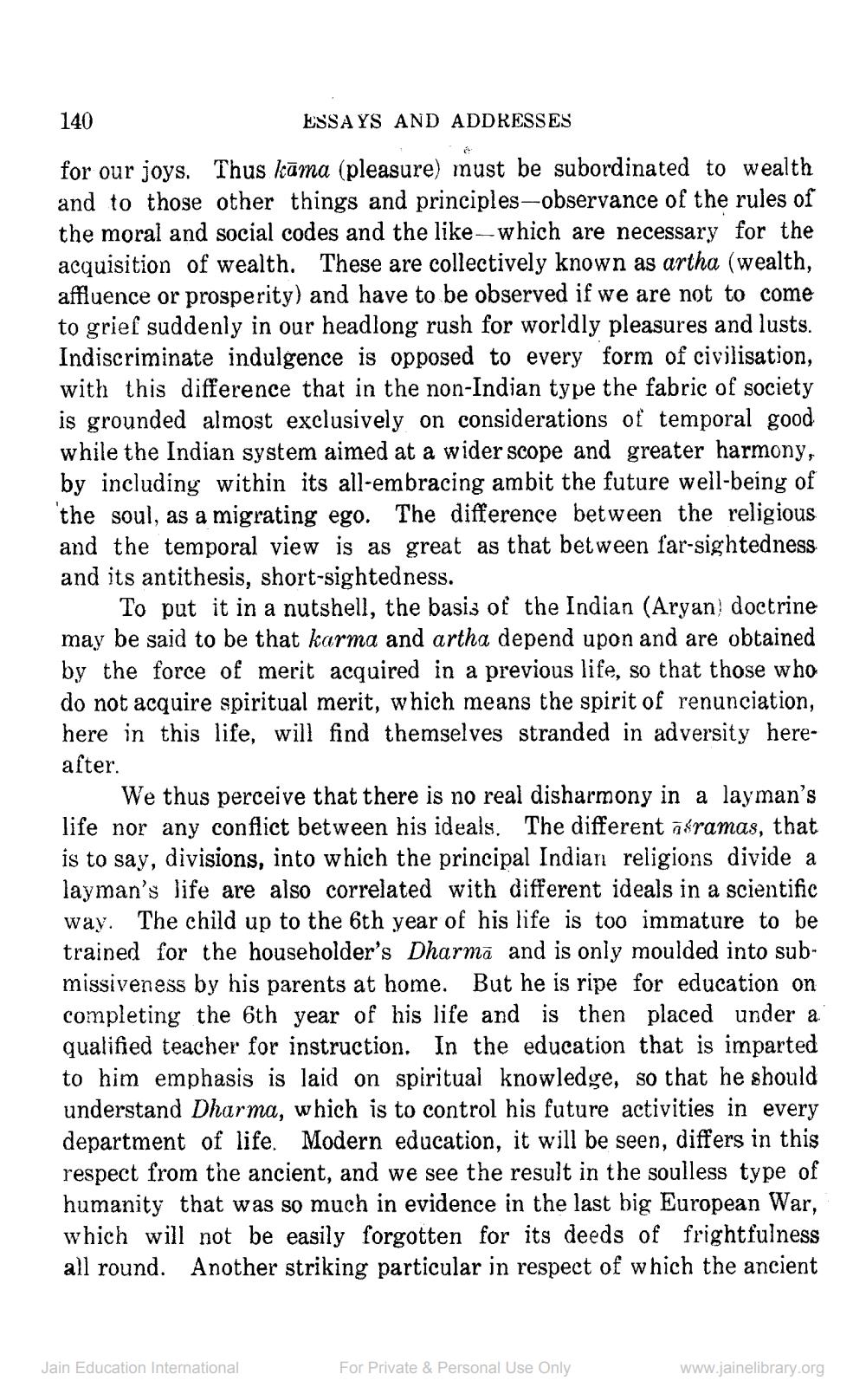________________
140
ESSAYS AND ADDRESSES
é
for our joys. Thus kama (pleasure) must be subordinated to wealth and to those other things and principles-observance of the rules of the moral and social codes and the like-which are necessary for the acquisition of wealth. These are collectively known as artha (wealth, affluence or prosperity) and have to be observed if we are not to come to grief suddenly in our headlong rush for worldly pleasures and lusts. Indiscriminate indulgence is opposed to every form of civilisation, with this difference that in the non-Indian type the fabric of society is grounded almost exclusively on considerations of temporal good while the Indian system aimed at a wider scope and greater harmony, by including within its all-embracing ambit the future well-being of the soul, as a migrating ego. The difference between the religious and the temporal view is as great as that between far-sightedness and its antithesis, short-sightedness.
To put it in a nutshell, the basis of the Indian (Aryan) doctrine may be said to be that karma and artha depend upon and are obtained by the force of merit acquired in a previous life, so that those who do not acquire spiritual merit, which means the spirit of renunciation, here in this life, will find themselves stranded in adversity hereafter.
We thus perceive that there is no real disharmony in a layman's life nor any conflict between his ideals. The different asramas, that is to say, divisions, into which the principal Indian religions divide a layman's life are also correlated with different ideals in a scientific way. The child up to the 6th year of his life is too immature to be trained for the householder's Dharma and only moulded into submissiveness by his parents at home. But he is ripe for education on completing the 6th year of his life and is then placed under at qualified teacher for instruction. In the education that is imparted to him emphasis is laid on spiritual knowledge, so that he should understand Dharma, which is to control his future activities in every department of life. Modern education, it will be seen, differs in this respect from the ancient, and we see the result in the soulless type of humanity that was so much in evidence in the last big European War, which will not be easily forgotten for its deeds of frightfulness all round. Another striking particular in respect of which the ancient
Jain Education International
For Private & Personal Use Only
www.jainelibrary.org




